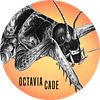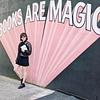Take a photo of a barcode or cover
A poet who truly lifts you into the pages, into the scene of his head. This collection will be buried with me.
challenging
dark
mysterious
reflective
Plot or Character Driven:
N/A
Strong character development:
N/A
Loveable characters:
N/A
Diverse cast of characters:
N/A
Flaws of characters a main focus:
N/A
The Thought-Fox ist eines der besten Gedichte, die ich je gelesen habe. Dem jungen Ted Hughes unterlaufen allerdings auch einige Poeme, die wie gesperrt gedruckte beiläufige Prosatexte anmuten, und bei einigen der Gedichte sollte ich mir wohl eher die Übersetzung ansehen. Insgesamt eine Spaß machende bunte Mischung.
slow-paced
challenging
dark
tense
I climbed through woods in the hour-before-dawn dark.
Evil air, a frost-making stillness,
Not a leaf, not a bird -
A world cast in frost. I came out above the wood
Where my breath left tortuous statues in the iron light.
But the valleys were draining the darkness
Till the moorline - blackening dregs of the brightening grey -
Halved the sky ahead. And I saw the horses:
Huge in the dense grey - ten together -
Megalith still. They breathed, making no move,
With draper manes and tilted hind-hooves,
Making no sound.
I passed: not one snorted or jerked its head.
Grey silent fragments
Of a grey silent world.
From the poem The Horses
I have a complex relationship with Ted Hughes, which is mainly due to the fact that my first glimpse of him was through the lens of Sylvia Plath’s poetry.
The vampire who said he was you
And drank my blood for a year,
Seven years, if you want to know.
from Plath’s poem Daddy
Through reading many biographies on Plath and most of her writing in print, the image I had of Hughes was, needless to say, negative and this view went unchallenged until I read Crow, which is one of the best poetry collections I’ve ever read.
Hughes is, undoubtedly, a master of his craft, and it was really interesting to back to his first published collection, Hawk in the Rain. His voice is already so strong, so steady in these poems; it rarely stumbles and I think his most striking work comes out in his nature poems. They’re barbaric, hostile, yet dreamlike - I found myself transported by them, soaking in their atmosphere and imagery.
Some of his poems about war were fascinating and gutting, especially Griefs for Dead Soldiers, which blew me away, but I really struggled with his more erotic poems or those in which he focused on love and women. It’s very odd knowing he was with Plath when he wrote these and that she typed lines that minimise women to cooking and makeup but there were some beautiful lines here and there.
There were many poems that I adored in here, and they are (in order in which they appear)
The Hawk in the Rain
The Thought-Fox
The Horses
Famous Poet
Incompatibilities
The Conversion of the Revered Skinner
Egg-Head
The Man Seeking Experience Enquires His Way of a Drop of Water
Meeting
Wind
October Dawn
Rosters in a Ring
Vampire
Childbirth
The Hag
The Casualty
Griefs for Dead Soldiers
The Martyrdom of Bishop Farrar
Evil air, a frost-making stillness,
Not a leaf, not a bird -
A world cast in frost. I came out above the wood
Where my breath left tortuous statues in the iron light.
But the valleys were draining the darkness
Till the moorline - blackening dregs of the brightening grey -
Halved the sky ahead. And I saw the horses:
Huge in the dense grey - ten together -
Megalith still. They breathed, making no move,
With draper manes and tilted hind-hooves,
Making no sound.
I passed: not one snorted or jerked its head.
Grey silent fragments
Of a grey silent world.
From the poem The Horses
I have a complex relationship with Ted Hughes, which is mainly due to the fact that my first glimpse of him was through the lens of Sylvia Plath’s poetry.
The vampire who said he was you
And drank my blood for a year,
Seven years, if you want to know.
from Plath’s poem Daddy
Through reading many biographies on Plath and most of her writing in print, the image I had of Hughes was, needless to say, negative and this view went unchallenged until I read Crow, which is one of the best poetry collections I’ve ever read.
Hughes is, undoubtedly, a master of his craft, and it was really interesting to back to his first published collection, Hawk in the Rain. His voice is already so strong, so steady in these poems; it rarely stumbles and I think his most striking work comes out in his nature poems. They’re barbaric, hostile, yet dreamlike - I found myself transported by them, soaking in their atmosphere and imagery.
Some of his poems about war were fascinating and gutting, especially Griefs for Dead Soldiers, which blew me away, but I really struggled with his more erotic poems or those in which he focused on love and women. It’s very odd knowing he was with Plath when he wrote these and that she typed lines that minimise women to cooking and makeup but there were some beautiful lines here and there.
There were many poems that I adored in here, and they are (in order in which they appear)
The Hawk in the Rain
The Thought-Fox
The Horses
Famous Poet
Incompatibilities
The Conversion of the Revered Skinner
Egg-Head
The Man Seeking Experience Enquires His Way of a Drop of Water
Meeting
Wind
October Dawn
Rosters in a Ring
Vampire
Childbirth
The Hag
The Casualty
Griefs for Dead Soldiers
The Martyrdom of Bishop Farrar
reflective
slow-paced
I found it oddly difficult to warm to this, and I don't know why. I generally like poetry about animals, and there are a number of animal poems here - one, "The Thought-Fox," is one of the first poems I ever remember studying (I dimly remember it from high school, I think) - but the prose doesn't entirely do it for me. While there were a number of poems that I liked, there was really only one that gave me a little jolt, prose-wise - you know, the feeling you get when you read something that's just beautifully phrased. That was "October Dawn," which has a lovely opening: "October is marigold, and yet / A glass half full of wine left out / To the dark heaven all night, by dawn / Has dreamed a premonition."
Those four lines are worth the price of admission, I reckon.
Those four lines are worth the price of admission, I reckon.
Ted Hughes’ poetry is carnal and earthy, placing a raw beauty on nature.
The assonance and consonance of 'The Hawk in the Rain' poem is quite something.
I drown in the drumming ploughland, I drag up
Heel after heel from the swallowing of the earth’s mouth,
From clay that clutches my each step to the ankle
With the habit of the dogged grave, but the hawk
Effortlessly at height hangs his still eye.
His wings hold all creation in a weightless quiet,
Steady as a hallucination in the streaming air.
While banging wind kills these stubborn hedges,
Thumbs my eyes, throws my breath, tackles my heart,
And rain hacks my head to the bone, the hawk hangs
The diamond point of will that polestars
The sea drowner’s endurance: and I,
Bloodily grabbed dazed last-moment-counting
Morsel in the earth’s mouth, strain towards the master-
Fulcrum of violence where the hawk hangs still,
That maybe in his own time meets the weather
Coming from the wrong way, suffers the air, hurled upside down,
Fall from his eye, the ponderous shires crash on him,
The horizon traps him; the round angelic eye
Smashed, mix his heart’s blood with the mire of the land.
The assonance and consonance of 'The Hawk in the Rain' poem is quite something.
I drown in the drumming ploughland, I drag up
Heel after heel from the swallowing of the earth’s mouth,
From clay that clutches my each step to the ankle
With the habit of the dogged grave, but the hawk
Effortlessly at height hangs his still eye.
His wings hold all creation in a weightless quiet,
Steady as a hallucination in the streaming air.
While banging wind kills these stubborn hedges,
Thumbs my eyes, throws my breath, tackles my heart,
And rain hacks my head to the bone, the hawk hangs
The diamond point of will that polestars
The sea drowner’s endurance: and I,
Bloodily grabbed dazed last-moment-counting
Morsel in the earth’s mouth, strain towards the master-
Fulcrum of violence where the hawk hangs still,
That maybe in his own time meets the weather
Coming from the wrong way, suffers the air, hurled upside down,
Fall from his eye, the ponderous shires crash on him,
The horizon traps him; the round angelic eye
Smashed, mix his heart’s blood with the mire of the land.
When it's good (eg. September), it's brilliant. When it's bad (eg. Secretary), it's sexist and has some serious sexual harassment connotations. Putting aside the problematic content, it was an an enjoyable read. Bittersweet and calming.
"I do not hold you closer and harder than love
By a desperation, show me no home."
---
"Under the silk of the wrist a sea, tell
Time is nowhere."
"I do not hold you closer and harder than love
By a desperation, show me no home."
---
"Under the silk of the wrist a sea, tell
Time is nowhere."





